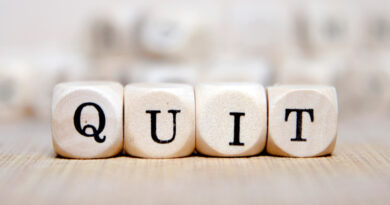When addiction starts taking a toll on your relationship
Something like addiction can have a big and deep impact on your life, having a tremendous effect on your family and close relationships. You are not capable of fully functioning because of the substances you are taking, so your poor judgement ends up affecting your relationship with your relatives and romantic partner.
Speaking of which, let us concentrate our attention just a little bit on that last aspect. For someone dealing with addiction, it can be hard, if not impossible to maintain intimacy and you risk losing the one person you cherish in the whole wide world. The only thing you can think about is drugs or alcohol. Nothing else matters and this is because your brain is rewired, but not for meaningful life changes.
How do you know if addiction is taking a toll on your relationship? Even subtle changes can make a big impact, so you should better be careful. More often than not, the greatest price is paid by a romantic partner. If you are curious to know just how devastating addiction can be, please continue reading. You will have a big surprise.
Being deceitful, which deteriorates the foundation of trust
Honesty is the foundation of any relationship, whether personal or professional. If you cannot trust your significant other, then the rest does not matter. You are building a future together and, in the absence of trust, the chances of success are slim to none. Honesty is what helps avoid breaches of trust.
Addicts tend to be deceitful and manipulative. They hide their drug abuse from their loved ones. What is worse, they manage to convince others to procure them the drug of their choice. Have you ever had to make up a story to explain why there is no money in your wallet? Perhaps you have.
The loss of trust can be devastating to a romantic relationship. The deception and the lies become a normal part of daily life and the relationship that you have spent years building will soon come to an end. Your leis become more and more elaborate. You end up making up excuse after excuse to cover up your actions.
And for what? For the next thrill? When you realise that things have gotten out of control, you isolate yourself from the person you love the most. As mentioned earlier, the drugs or alcohol affect your decision making, so you cannot be expected to make sound decisions. The things that were important a couple of weeks ago suddenly become trivial.
Violence and abuse
Domestic violence is not necessarily synonymous with physical violence. It encompasses everything that a person does to gain control over a loved one, such as emotional abuse, intimidation, threats, blaming, making use of certain privileges, and economic abuse. If drugs or alcohol are involved, the situation becomes complicated. Just about any type of addiction can trigger violence, just so you know.
All the anger and resentment that the person accumulates explodes in the least pleasant ways. You continue with the negative behaviour in spite of the consequences. It is needless to say what can happen when you lash out on your loving partner. Taking deep breaths will not slow you down. You have to seek professional help.
The types of treatment depend on the geographic location. However, they will all ensure a formal program to address a variety of individual needs of patients with special needs. If you look hard enough, you will find recovery and rehabilitation options. Your romantic partner should not suffer because of you.
Enabling a toxic relationship
Even high-empowered women end up in toxic relationships. Contrary to popular opinion, it is not nature that drives us to toxic partners. It is a matter of luck. You care so much about that person that you are willing to do anything to make them happy, even if that includes enabling their addiction.
You see, power is shared in a healthy relationship. Partners take full responsibility for their actions and decisions are made together. None of the partners feels vulnerable. On the contrary, they feel valued and safe. In a toxic relationship, it is a completely different story. One person takes control of the other person’s emotions, so they are the ones wearing the pants in the relationship.
Understand that enabling is not the same thing as helping. Giving a person money or making up excuses for them does not count as helping. The smart thing to do would be to stage an intervention and make sure they fix the problem before it is too late.
Should you cut all romantic ties?
Being in a romantic relationship as someone who is struggling to beat addiction can be difficult, as you have to carefully reflect upon every decision you make. Relationships are never easy. Common sense will tell you to leave that person alone and carry on with your life. Is it really the best thing you can do? Actually, no.
To overcome substance abuse, you need all the help you can get. The professionals working at addiction centres do their best to get you on the right path again, but without the support of your loved ones, their efforts will have been in vain. Even if you have inflicted pain and suffering, you have the right to get better. The support of your loving partner is what helps get through the bad days and prevents a relapse.
After having addressed the issue and seeking treatment, you will still have to face the troubles in your relationship. There is no getting around that. Make amends for your behaviour when you have the chance. Think about what you can do to make the relationship better. The drug abuse or drinking has stopped; there is no doubt about that. But what about the rest of the problems? Maybe it is time to have a chat with your loved one. If you ignore the problems, they will only get worse and your chance at happiness will be gone forever.



